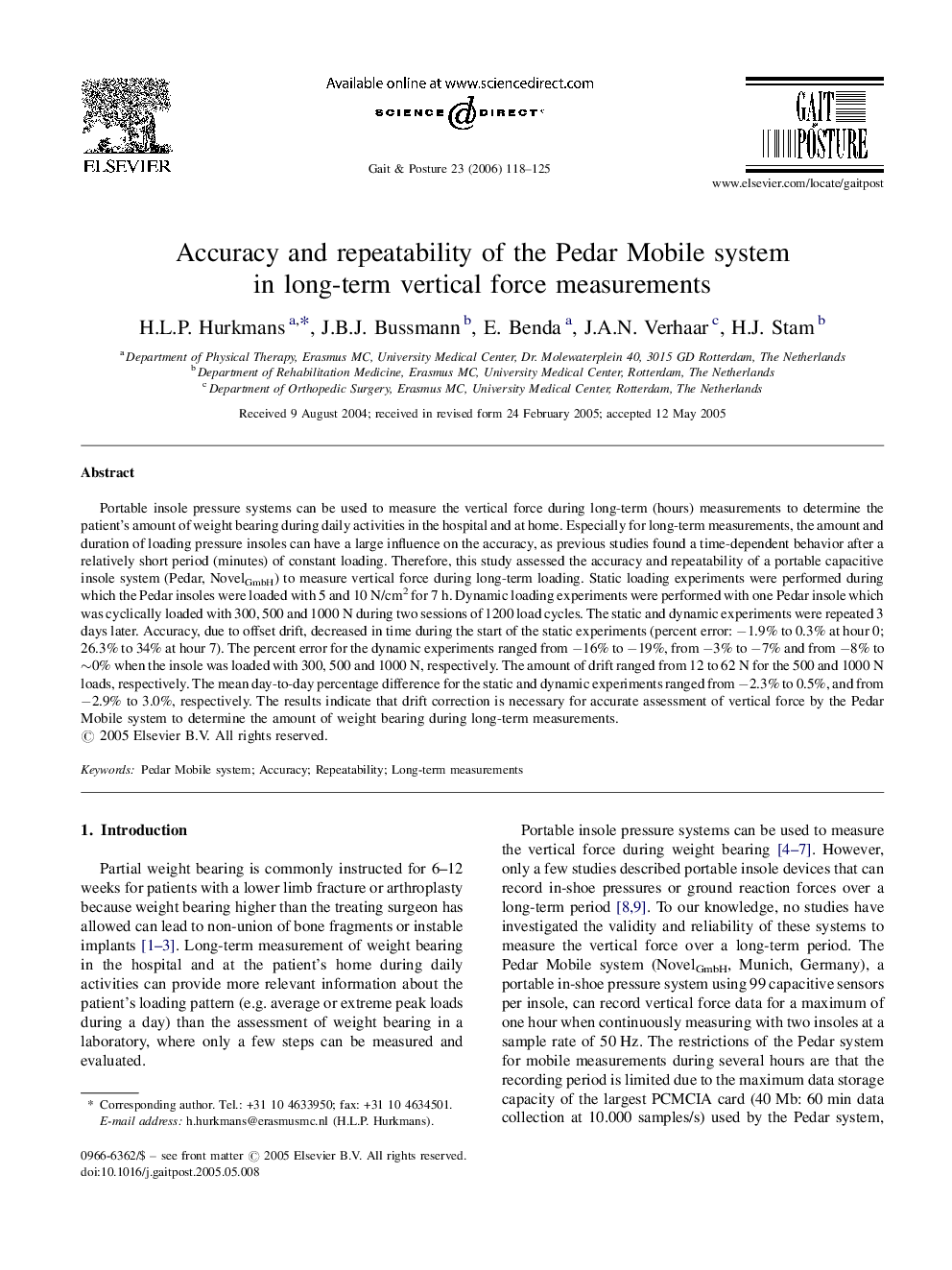| Article ID | Journal | Published Year | Pages | File Type |
|---|---|---|---|---|
| 4058577 | Gait & Posture | 2006 | 8 Pages |
Portable insole pressure systems can be used to measure the vertical force during long-term (hours) measurements to determine the patient's amount of weight bearing during daily activities in the hospital and at home. Especially for long-term measurements, the amount and duration of loading pressure insoles can have a large influence on the accuracy, as previous studies found a time-dependent behavior after a relatively short period (minutes) of constant loading. Therefore, this study assessed the accuracy and repeatability of a portable capacitive insole system (Pedar, NovelGmbH) to measure vertical force during long-term loading. Static loading experiments were performed during which the Pedar insoles were loaded with 5 and 10 N/cm2 for 7 h. Dynamic loading experiments were performed with one Pedar insole which was cyclically loaded with 300, 500 and 1000 N during two sessions of 1200 load cycles. The static and dynamic experiments were repeated 3 days later. Accuracy, due to offset drift, decreased in time during the start of the static experiments (percent error: −1.9% to 0.3% at hour 0; 26.3% to 34% at hour 7). The percent error for the dynamic experiments ranged from −16% to −19%, from −3% to −7% and from −8% to ∼0% when the insole was loaded with 300, 500 and 1000 N, respectively. The amount of drift ranged from 12 to 62 N for the 500 and 1000 N loads, respectively. The mean day-to-day percentage difference for the static and dynamic experiments ranged from −2.3% to 0.5%, and from −2.9% to 3.0%, respectively. The results indicate that drift correction is necessary for accurate assessment of vertical force by the Pedar Mobile system to determine the amount of weight bearing during long-term measurements.
